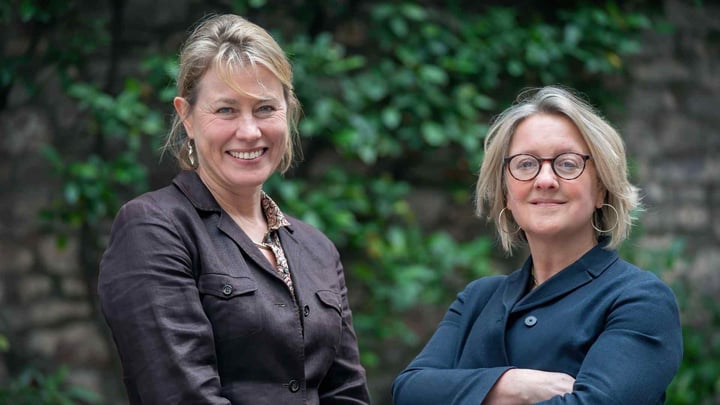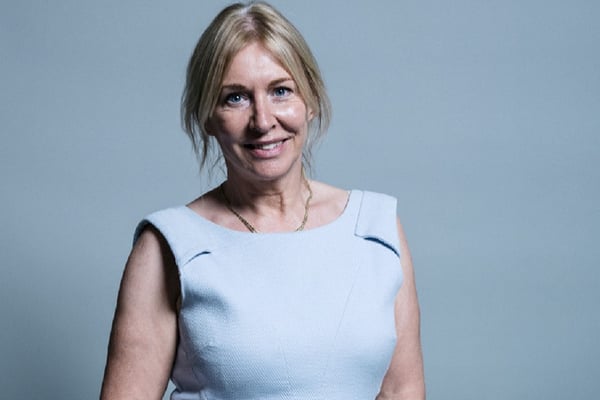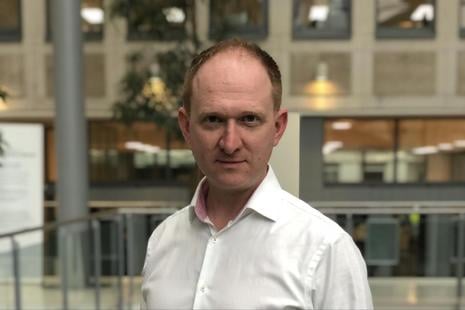The joint CEOs driving digital change in Wales

A famous quote attributed to the American author and disability rights activist Helen Keller encapsulates the power of collaboration: “alone we can do so little; together we can do so much.” That is certainly true for Harriet Green and Myra Hunt, the new joint CEOs at the Centre for Digital Public Services (CDPS), an arm’s length body of Welsh Government, set up to support the design and delivery of better public services.
Although Green and Hunt have only been in post since the new year, their public sector career spans over a decade. Before joining CDPS, both spent four years co-sharing the role of Chief Digital Officer at the Department for Environment, Food and Rural Affairs (DEFRA) and seven years at the British Council, where they were jointly responsible for digital and e-commerce. They also share a long history of work at the BBC, albeit not in shared roles.
Green and Hunt are enthusiastic advocates of job sharing and the benefits it brings to people with diverse responsibilities or needs but who want to progress their careers or pursue non-executive roles. It is also a valuable option for employers: according to recruitment experts, it can lead to higher performance among staff and reduce the risk of burnout. However, despite these positive effects, job-sharing has seen a decline over the last decade in the UK, and this kind of work arrangement is still rare.
“When I'm in the office, Harriet knows that I'm taking responsibility for what's going on that day and she can switch off,” explains Hunt, adding that, effectively, employers “get two minds for the price of one”
“It has all the advantages of giving you time and flexibility to manage your life and, at the same time, coming back into the office refreshed and ready for the next challenge. You know that when you're not in the office, your partner is there holding the fort.”
Sharing similar values has contributed to the success of their joint role, and both say that knowing what each wants to achieve on a personal level is a strong and necessary foundation for any job share.
“What’s really fundamental is that neither of us could hold a senior role like this without this kind of arrangement,” says Green. “You can’t be a part-time CEO or a part-time Chief Digital Officer at DEFRA.”
CDPS mission in Wales
CDPS is a growing organisation, created at the beginning of the pandemic, on an important mission to support the delivery of the Digital Strategy for Wales, published in 2021 by the Welsh Government to create citizen-centric and sustainable digital public services supported by the ethical use of data. In this context, CDPS is part of “a big statement of intent and direction”, say Hunt and Green: “We want to have a big impact”.
As part of the Digital Strategy, the Welsh Government has also appointed new Chief Digital Officers (CDOs) for Local Government and Welsh Government, and is looking to appoint one for Health. Green and Hunt are following on from Sally Meecham, who was the previous interim CEO at the centre.
Together with the new CDOs, CDPS has the opportunity to adopt a pan-Wales digital agenda by agreeing on the main obstacles and opportunities to improve the lives of citizens through better public services.
“In working with those Chief Digital Officers, we can come to agreements and create a kind of notional roadmap of the key challenges we need to address, and work out how we use all the tools and resources in Wales to address those agreed challenges and opportunities,“ Green says. “We're mostly concerned with mission one - creating digital public services for the people of Wales, which are safe, secure, easy to use, and easily accessible.”
Rather than delivering projects in a supplier fashion, CDPS fosters and promotes the digital industry in Wales “to show what good looks like” with a view to scaling successful approaches. “What good looks like” can present itself in many ways, whether through automation, accessibility, better user experience, user-focused design or bilingualism - the latter a legal requirement for public services provision in Wales.
“Every project we choose to work on will have at its heart a desire to be exemplary and to show more broadly the kind of standard which we'd like to reach more broadly,” says Green.
“Everything that CDPS does, we do it in partnership,” adds Hunt. “This is about transforming government services. We are working with sponsored bodies who are responsible for those services, enabling them to change and improve them. That means that we have a number of ‘digital squads’ on the ground, working in partnership and doing recognisable, multidisciplinary team work.”
Improving services through ‘digital squads’
One area of focus for CDPS is healthcare. This is reflected in the work they do with Digital Health and Care Wales (DHCW), a new special health authority that creates digital solutions to improve health and care in the country, born out of the long-term strategy for health and social care in Wales.
Although Covid-19 presented enormous challenges for the healthcare sector, it has also significantly encouraged adoption of digital technology.
One of CDPS’s digital squads (‘hands-on’ engagement teams), is working across Wales doing user research around access to primary healthcare to understand the experiences of people during the pandemic. The squad is assessing what can be done to enable people to access primary care more effectively and in a more user-friendly way now that online consultations are the norm.
Another area where CDPS has deployed a ‘digital squad’ is social care. The team started a project in Neath Port Talbot, a county borough in southwest Wales, exploring how to provide text updates to people waiting for access to social care packages.
“The question that arose from Neath Port Talbot is how do we redesign our social care service and how do we put together packages of help for people?“ says Hunt. “The local authority is taking on responsibility for running the operational text alert service that enabled us to start working together. Now, we're going to do a bigger piece of work about the design of social care services more broadly.”
But a less desirable by-product of the digitalisation leap brought about by the pandemic has been the widening of the digital exclusion gap, an area that Hunt and Green say CDPS is taking very seriously.
“Although CDPS in itself will not own fully the digital exclusion and inclusion solution, we're definitely a part of it in a kind of cross-cutting way,” Green explains. “We are taking responsibility for gathering, understanding about what's currently happening, where the issues are, and what might be the solutions.”
CDPS is mapping out the problem, which is more pronounced across rural parts of Wales where broadband issues are more prevalent. By understanding where the gaps are and who is doing what, CDPS believes that the issue can be addressed effectively and resources spent better.
Hunt and Green’s drive and enthusiasm to improve services for the people in Wales are evident in their words as they both assert that making lives better and ensuring that people can continue accessing quality public services in the digital world “is really attractive”.
“One of the great things that we've discovered in Wales is that there's no option not to collaborate or work with each other,” concludes Green, while Hunt adds: “It's really important that we create an appropriate presence for our state services in the digital world, because often we need them in times of crisis. They provide opportunity for people who need opportunities. And I really believe in that.”
(Photo courtesy of CDPS. Left: Myra Hunt, right: Harriet Green.)
Also Read
- NHS unveils redesigned homepage to meet evolving digital health needs
- Transforming citizen experience: Innovation, strategy and collaboration in public services
- Reforming planning technology: the key to unlocking growth
- Canada sets out 'Digital Ambition' with focus on smarter, secure, and citizen-centric services





